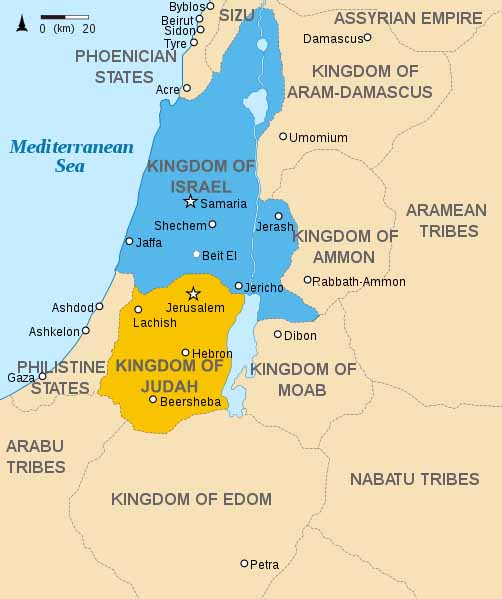
noun
- a district in ancient Palestine: later part of the Roman province of Syria; taken by Jordan 1948; occupied by Israel 1967.
- the northern kingdom of the ancient Hebrews; Israel.
- the ancient capital of this kingdom.
noun
- a republic in SW Asia, on the Mediterranean: formed as a Jewish state May 1948. 7984 sq. mi. (20,679 sq. km). Capital: Jerusalem.
- the people traditionally descended from Jacob; the Hebrew or Jewish people.
- a name given to Jacob after he had wrestled with the angel. Gen. 32:28.
- the northern kingdom of the Hebrews, including 10 of the 12 tribes, sometimes called by the name of the chief tribe, Ephraim. Capital: Samaria.
- a group considered by its members or by others as God’s chosen people.
- a male given name.
noun
- the region of ancient Palestine that extended from Judaea to Galilee and from the Mediterranean to the River Jordan; the N kingdom of Israel
- the capital of this kingdom; constructed northwest of Shechem in the 9th century bc
noun
- a republic in SW Asia, on the Mediterranean Sea: established in 1948, in the former British mandate of Palestine, as a primarily Jewish state; 8 disputes with Arab neighbours (who did not recognize the state of Israel), erupted into full-scale wars in 1948, 1956, 1967 (the Six Day War), and 1973 (the Yom Kippur War). In 1993 Israel agreed to grant autonomous status to the Gaza Strip and the West Bank, according to the terms of a peace agreement with the PLO. Official languages: Hebrew and Arabic. Religion: Jewish majority, Muslim and Christian minorities. Currency: shekel. Capital: Jerusalem (international recognition withheld as East Jerusalem was annexed (1967) by Israel: UN recognized capital: Tel Aviv). Pop: 7 707 042 (2013 est). Area (including Golan Heights and East Jerusalem): 21 946 sq km (8473 sq miles)
-
- the ancient kingdom of the 12 Hebrew tribes at the SE end of the Mediterranean
- the kingdom in the N part of this region formed by the ten northern tribes of Israel in the 10th century bc and destroyed by the Assyrians in 721 bc
- informal the Jewish community throughout the world
from Greek Samareia, from Aramaic Shamerayin, ultimately from Hebrew Shomeron, from Shemer, name of the owner who sold the site to King Omri (cf. 1 Kings xvi:24). Old English, “the Jewish people,” from Latin Israel, from Greek, from Hebrew yisra’el “he that striveth with God” (Gen. xxxii.28), symbolic proper name conferred on Jacob and extended to his descendants, from sara “he fought, contended” + El “God.” As an independent Jewish state in the country formerly called Palestine, it is attested from 1948. The name given to Jacob after he wrestled with God. Israel is also the name of the northern kingdom of the Israelites, when their nation was split in two after the death of King Solomon. (See under “World Geography.”) Republic in the Middle East, formerly part of Palestine. Israel is bordered by Lebanon to the north, Syria and Jordan to the east, the Gulf of Aqaba (an arm of the Red Sea) to the south, Egypt (see also Egypt) to the southwest, and the Mediterranean Sea to the west. Its capital and largest city is Jerusalem (see also Jerusalem).
 Liberal Dictionary English Dictionary
Liberal Dictionary English Dictionary